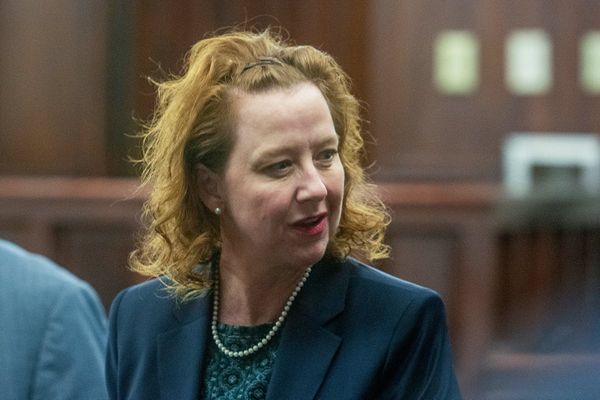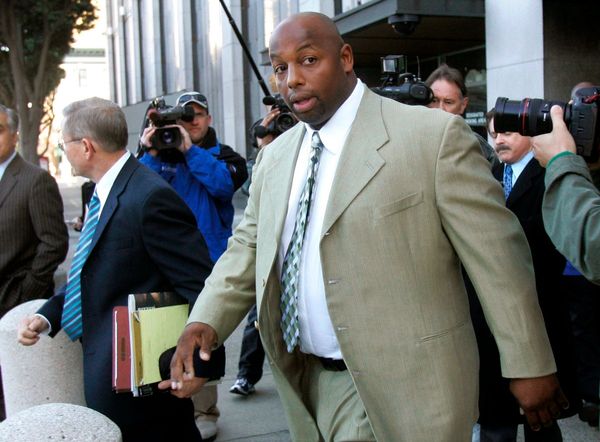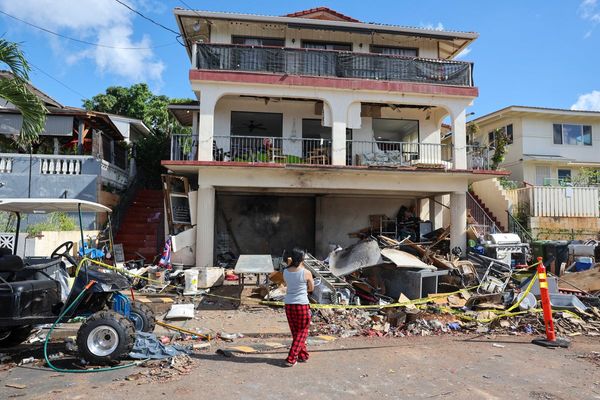Russia's military has suffered a heavy blow in Ukraine, where local forces have destroyed a pontoon bridge enemy troops were using to try to cross a river, according to officials in Kyiv and London.
Ukraine’s airborne command released photos and video of what it said was the damaged Russian pontoon bridge over the Siversky Donets River and several destroyed or damaged Russian military vehicles nearby.
The Ukrainians said they destroyed at least 73 tanks and other military equipment during the two-day battle earlier this week when Russian forces attempted to cross the river.
The command said its troops "drowned the Russian occupiers".
Britain's Defence Ministry said Russia lost "significant armoured manoeuvre elements" of at least one battalion tactical group as well as equipment used to deploy the makeshift floating bridge.
Turkey 'unfavourable' towards Finland, Sweden joining NATO
Plans by Finland and, potentially, Sweden to join NATO have been thrown into doubt, with Turkish President Recep Tayyip Erdogan saying his country is "not of a favourable opinion" toward the idea.
He accused Sweden and other Scandinavian countries of supporting Kurdish militants and others who Turkey considers terrorists.
Mr Erdogan did not say outright that he would block the two countries from joining NATO, but the military alliance makes its decisions by consensus, meaning each of its 30 members has a veto over who can join.
An expansion of NATO would be a blow to Russian President Vladimir Putin, who launched the war in Ukraine partly as a bid to thwart the alliance's eastward advance.
But the invasion of Ukraine has stirred fears in other countries along Russia's flank that they could be targeted by Moscow next.
With Ukraine pleading for more arms to fend off the invasion, the European Union's foreign affairs chief has announced plans to give the country an additional 500 million euros ($752 million) to buy heavy weapons.
Ukrainian Defence Minister Oleksii Reznikov welcomed the heavy weapons making their way to the front lines but admitted there was no quick end to the war in sight.
"We are entering a new, long-term phase of the war," he wrote in a Facebook post.
Losses force Russia to downsize objectives
The battle for Ukraine's Donbas region has turned into a village-by-village slog, with no major breakthroughs on either side and little ground gained.
In his nightly address on Friday, Ukrainian President Volodymyr Zelenskyy said no-one could predict how long the war would last but his country's forces had been making progress, including retaking six Ukrainian towns or villages in the past day.
The Ukrainian military chief for the Luhansk region of Donbas said on Friday that Russian forces opened fire 31 times on residential areas the day before, destroying dozens of homes, notably in the villages of Hirske and Popasnianska.
He said Russian troops had taken nearly full control of Rubizhne, a city with a prewar population of about 55,000.
In the south, Ukrainian officials claimed another success in the Black Sea, saying their forces took out another Russian ship, though there was no confirmation from Russia and no casualties were reported.
The Vsevolod Bobrov logistics ship was badly damaged but not thought to have sunk when it was struck while trying to deliver an anti-aircraft system to Snake Island, Oleksiy Arestovych, a Ukrainian presidential adviser, said.
In April, Ukraine sank the Moskva, a guided missile cruiser that was the flagship of Russia's Black Sea fleet. In March it destroyed a landing ship.
Justin Crump, a former British tank commander who is now a security consultant, said Moscow's losses had forced it to downsize its objectives.
He said the Russians have had to use hastily patched-together units that had not trained together and were consequently less effective.
"I think the Russian side is very clear that this is going to take a long time."
Schools reopen in makeshift classrooms
As the war grinds on, teachers are trying to restore some sense of normalcy for children.
In Kharkiv, Ukraine's second-largest city, lessons are being given in a subway station that has become home to many families.
Children join their teacher Valeriy Leiko around a table to learn about art history, with youngsters' drawings lining the walls.
"It helps to support them mentally," Mr Leiko said.
"Because now there is a war, and many lost their homes ... some people's parents are fighting now."
He said the lessons help the students "feel that someone loves them".
ABC/wires







